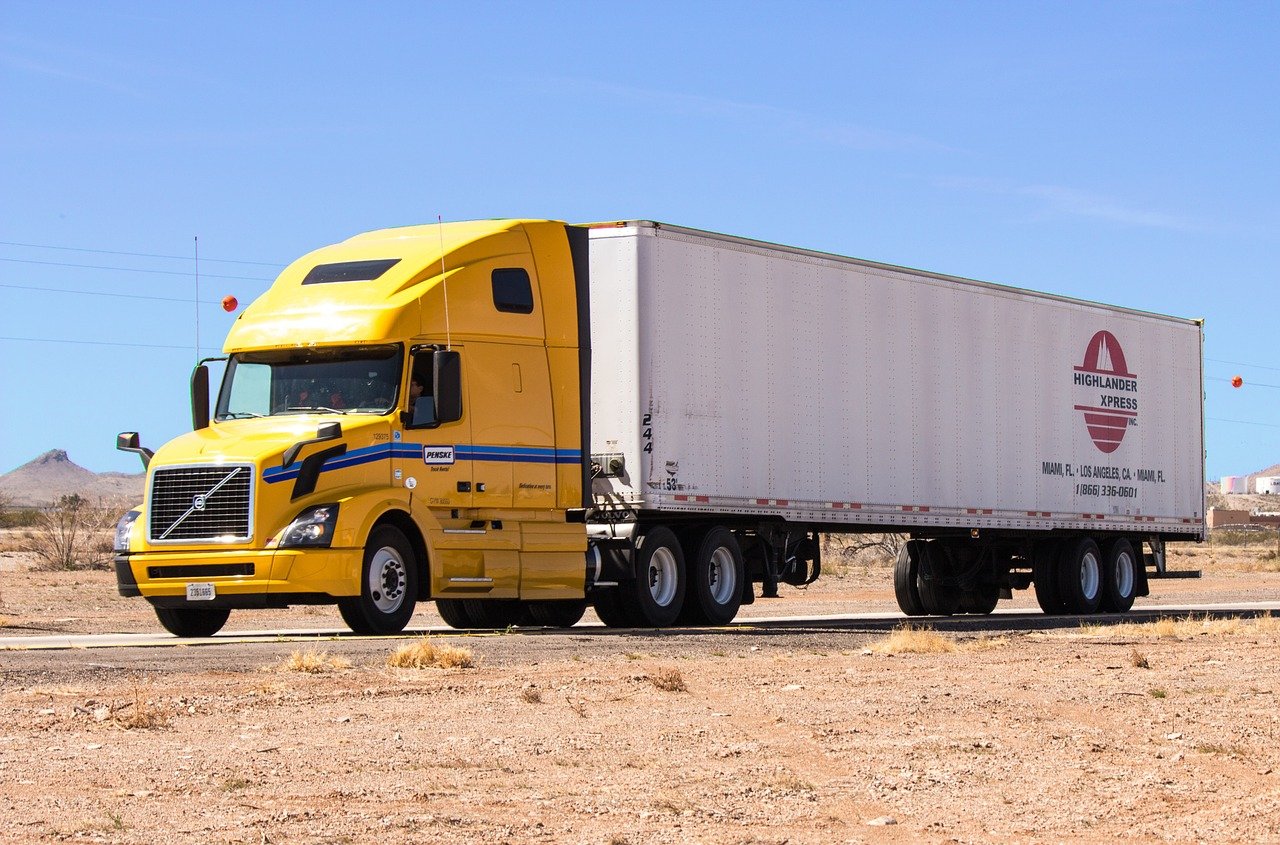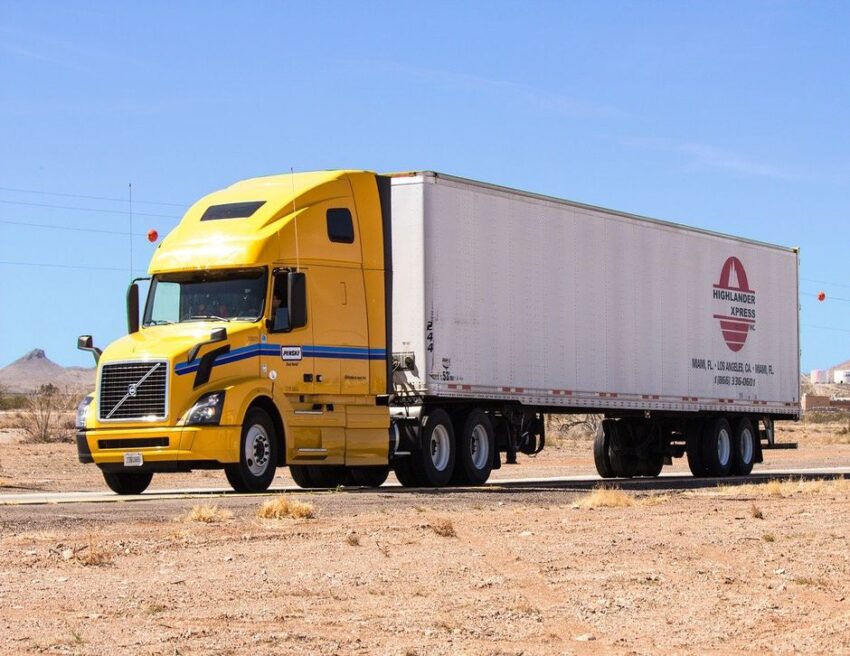The last two years have been incredibly challenging for the transportation and logistics industry worldwide. For the first time, we have seen how the global supply chain was impacted at the same time because of the pandemic. Like all other sub-sectors of logistics, the road freight industry is presently experiencing unprecedented challenges. At the moment, the road transportation sector in many countries is battling a severe shortage of truck drivers. Moreover, the existing vulnerabilities of the sector are being further complicated by new challenges such as digitization, the e-commerce boom, labour shortage, and changing market conditions.
In today’s post, we are going to talk about the challenges of the road freight industry and how digitization can help to counter them. Andrea Martin, The Coop’s FreightViewer Coordinator, participated in the Roundtable titled ‘Road Transport Challenges’ of the Logistics Business Show last Tuesday 15th March. On it, she talked about “How to deal with the road transportation challenges through digitization.”

Major challenges facing the road freight industry
Driver Shortage
This year, the tremendous scarcity of qualified drivers in the US, Canada, and beyond is one of the most palpable problems the industry is facing. The reason behind the driver shortage is the high turnover rate of truck drivers, the pandemic, better job opportunities, and the difficulties that this profession entails. Moreover, autonomous vehicles are not an answer to this situation since drivers will always be needed. According to forecasts, the 2024 volume difference is estimated to be up to 300,000 compared to available truck drivers.
Higher transportation costs
The shortage of drivers is also bringing up the cost of moving goods by trucks. The rise in shipping expenses obviously has an effect on the prices of the commodities as well. Moreover, the rising fuel prices are also compounding the crisis. In this context, it is important to remember that chaos or radical change in the market, is a threat to someone and a chance for someone else. Companies that have sufficient capital, better technology, and so on will be able to have lower prices. This could indeed pose a problem for small and mid-sized trucking companies.
Lack of digitized operations
Cargo delays, unclear order status, and stolen goods are some of the issues which are relatively common in this industry. A secure supply chain requires a rapid flow of information. Freight status information is crucial to the shipper in order to prevent and prepare for unwanted and unpleasant situations. Additionally, cargo tracking platforms can also improve security and provide better customer service. However, implementing these digital changes is one of the big challenges in the road transport industry.
How the trucking companies can utilize technology?
The implementation of new online platforms that focuses on data standardization, automation of manual processes and predictive analysis can be very helpful for this sector. One important tool that this industry can make use of is Transportation Management System aka TMS. For example, a TMS, such as FreightViewer, allows for the full exchange of data from all participants in the transport process. Most importantly, it directly impacts customer service, one of the key factors that determines the success of a company. Additionally, tools for fleet optimization, route optimization, cargo tracking, etc. not only adds value to the customers but also enhances fuel efficiency. Implementation of these tools will better prepare the road transportation sector to deal with the challenges.
Industry 4.0 is no longer an idea or concept from the future. It’s a reality- a revolution that is transforming the industry. In this digital era we find updates such as: automated processes, the Internet of Things, data transfer or exchange of documents. All the useful new tools that the digitization is bringing can be combined in a unique platform, a TMS. Implementation of Transport Management System will help workers in the industry to overcome or, at least mitigate some of the present challenges.
The trucking companies are still carrying on with the age old processes due to fear of long-term investments. This is one of the most important factors that is keeping the companies from realizing their fullest potential. It needs to be kept in mind that with the successful digital transformation comes return on investment.
Which are the technologies that could bring about a change for the road transport industry?
Smart Road Technology
Smart roads make use of IoT (Internet of Things) powered devices. This technology allows for safer driving, increased efficiency, conformity with government objectives, and environmentally sustainable operations. It enables drivers to know, for example, about the traffic condition in the roads that will be used. This info will help them to avoid traffic jams. Moreover, technology will allow drivers to obtain information about weather conditions. This will help them come to a decision about taking alternative routes if necessary. Traffic management networks even enable the driver to check road conditions and evaluate if that can be harmful for the cargo or even the driver. Smart roads combine the use of physical infrastructure like sensors and solar panels with online infrastructure like Big Data or Artificial Intelligence.
Use and management of data through TMS
Easy accessibility to data is essential in the shipping industry, specially in land transportation. Information is important since it enables all the stakeholders to protect themselves against the unexpected. Road freight operators can use data to avoid bottlenecks, congestion terminals and boundaries. Moreover, data about freight charges also allows the trucking company to offer the best rate to the customers. However, having the data is not enough. Proper data management is also crucial. And this is why this sector can benefit from the use of a TMS. The TMS enables the users to manage rates, and helps with tracking as well as documentation. Most importantly, all of this can be done on a single platform.
One of the biggest advantages of using TMS, such as the one we are developing-FreightViewer, is the exchange of data not only inside the company, but also between different parties worldwide involved in the shipping operation. And for this its crucial to have a common platform being used at both ends. This is what The Cooperative is currently offering to its network members. FreightViewer not only gives them the ability to quote in a few seconds and to send/receive requests from clients and customers, it also helps to achieve end-to-end connectivity which is so necessary for this sector for a successful operation.
Autonomous trucks
Automation is widely regarded as the next giant leap for the road freight industry. Self-driving trucks will reduce the environmental impact of the transportation and logistics industry and can even cut down the transportation costs by up to 40%. Self-driving trucks are regular trucks that are operated by AI and machine learning technology. However, human monitoring of these trucks is imperative at the moment. Artificial Intelligence tracks several sources of data and collates them into a single pattern allowing the vehicle to drive on its own. It will still take several years before self-driving vehicles become a common sight on the highway. Nevertheless, the pace at which technology is progressing, this technology will become more common within just a few more years.


